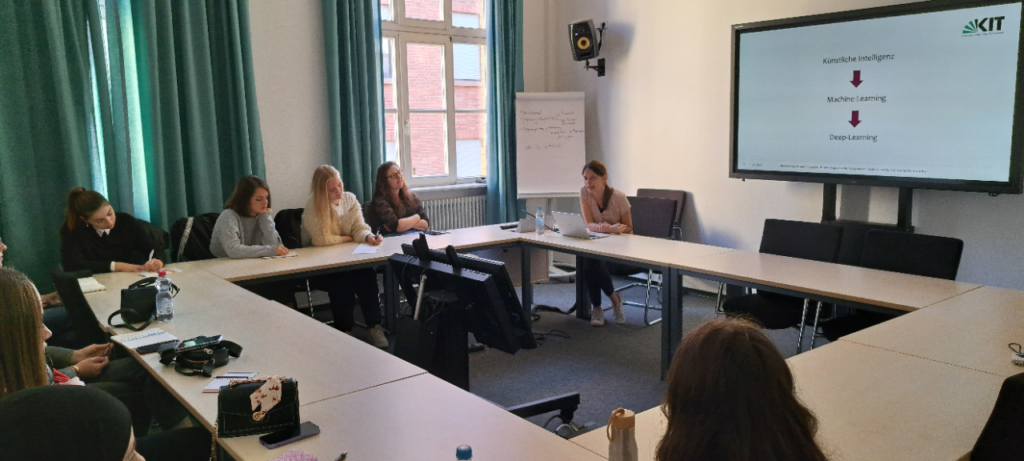How does AI challenge our linguistic competence? How is AI conceptualized in public discourse? How can a deepfake be distinguished from a real video?
12 Bachelor students from the University of Sarajevo in Bosnia-Herzegovina gathered at IDS in Mannheim on Monday, October 21, 2024 at 9:30 a.m. to discuss these and other questions together with Nina Kalwa (KIT). She organized the workshop at the request of Prof. Vedad Smailagić, who had travelled to Mannheim with his students for a study visit. During the two-hour workshop, the main focus was on the exchange and discussion of various questions relating to AI and linguistic competence. Together, they first outlined how AI is talked about in public discourse and which narratives and images are used. They then delved deeper into the field of linguistics and the question of how AI processes and imitates human communication.
The participants discovered that both linguistic structures and mediality, including style and variety and the communicative-pragmatic framing of language, are imitated by generative processes. And in different ways, depending on whether it is a deep-fake video, a language assistant or a generative AI such as ChatGPT.

Image: Vedad Smailagić
Using various deepfakes as examples, the participants then considered how social media users can recognize and evaluate fakes and to what extent AI might even disrupt digital communication. The participants showed great interest and openness to the workshop topics, exchanged experiences and were able to take away numerous new perspectives from the workshop.





